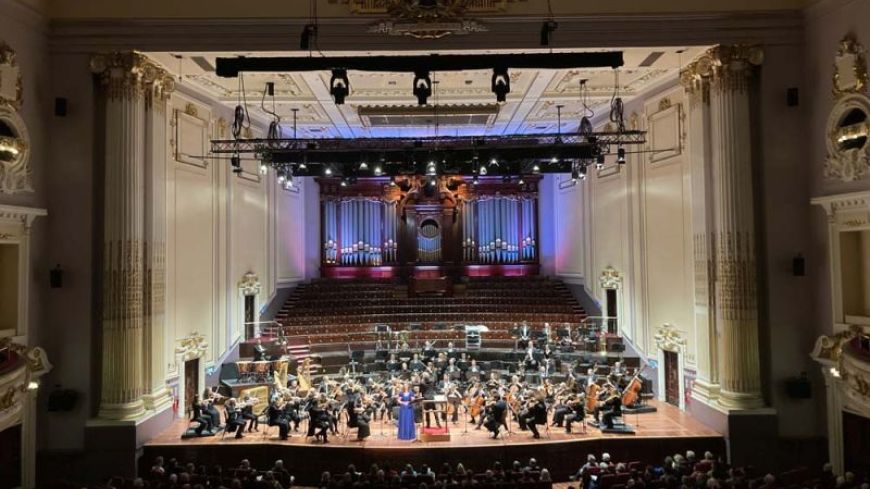
This was a concert from French composers, some with connections to César Franck, building on the Orchestra's reputation gained during Stéphane Denève's reign as Music Director. But it had two more themes. This was the evening of International Women's Day, and two days before Mothering Sunday, so we heard the work of two women composers. Thirdly, we were welcoming to Edinburgh Sistema Scotland's Big Noise programme.
And it was children of between 7 and 9 who were sitting on stage alongside members of the Orchestra's string section as the concert began. It was hard to count how many children, but the progamme listed fifty names who hailed from Edinburgh's Wester Hailes. With them, and to play two of her compositions, was Joëlle Broad one of the original team members of the first Big Noise programme in Stirling back in 2008. This was the first time her Saturn had been performed with a full orchestra, whilst her Mission Mars required no need to be able to read music. The audience, which included many parents, was delighted with the performance.
We heard Mel Bonis' Trois Femmes de légende - a trilogy of tone poems depicting noteworthy women from about 1909 which her great-granddaughter developed into a three movement work first heard in Cardiff in 2015.
The flowers of the waters and The death of love of Ernest Chaussan's Poème de l'amour et de la mer were sung in French for us by one of Scotland's great mezzo-sopranos, Catriona Morison. She was battling with a cold but that didn't seem to matter. It was a shame she hadn't been able to be at the pre concert talk and we missed her insight to the work. That said, violist Katherine Wren gave a first class talk without being able to interview the celebrated mezzo-soprano.
After the interval we heard Ravel's calm and then turbulent depiction of the sea, developed from one of his five piano pieces, Miroirs, from 1905. By contrast and from the same period, the concert climaxed with Debussy's La mer. This was Thomas Søndergård's masterly control of the emotions Debussy derived from the sea.
Event: Friday 8th March 2024 at 7.30pm

